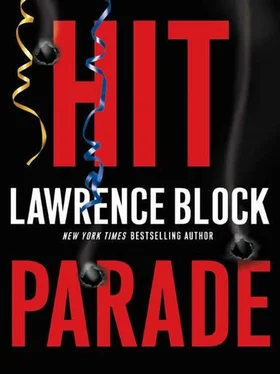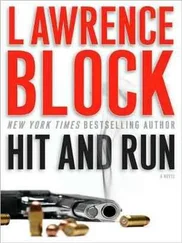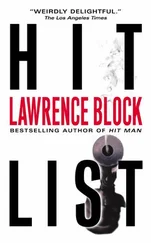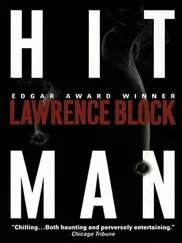“Hurray for our side,” she said. “You want to tell me about it, Keller?”
“Tell you about it? I just told you about it.”
“You were gone over a month,” she said, “doing what you could have done in two days, and I thought you might want to explain it to me.”
“The other hitter,” he began, but she was shaking her head.
“Don’t give me ‘the other hitter.’ You could have closed the sale before the other hitter ever turned up.”
“You’re right,” he admitted. “Dot, it was the numbers.”
“The numbers?”
“Four hundred home runs,” he said. “Three thousand hits. I wanted him to do it.”
“ Cooperstown,” she said.
“I don’t even know if the numbers’ll get him into the Hall of Fame,” he said, “and I don’t really care about that part of it. I wanted him to get in the record books, four hundred homers and three thousand hits, and I wanted to be able to say I’d been there to see him do it.”
“And to put him away.”
“Well,” he said, “I don’t have to think about that part of it.”
She didn’t say anything for a while. Then she asked him if he wanted more iced tea, and he said he was fine, and she asked him if he’d bought some nice stamps for his collection.
“I got quite a few from Turkey,” he said. “That was a weak spot in my collection, and now it’s a good deal stronger.”
“I guess that’s important.”
“I don’t know,” he said. “It gets harder and harder to say what’s important and what isn’t. Dot, I spent a month watching baseball. There are worse ways to spend your time.”
“I’m sure there are, Keller,” she said. “And sooner or later I’m sure you’ll find them.”
“So who do you likein the third?”
Keller had to hear the question a second time before he realized it was meant for him. He turned, and a little guy in a Mets warm-up jacket was standing there, a querulous expression on his lumpy face.
Who did he like in the third? He hadn’t been paying any attention and was stuck for a response. This didn’t seem to bother the guy, who answered the question himself.
“The Two horse is odds-on, so you can’t make any money betting on him. And the Five horse might have an outside chance, but he never finished well on turf. The Three, he’s okay at five furlongs, but at this distance? So I got to say I agree with you.”
Keller hadn’t said a word. What was there to agree with?
“You’re like me,” the fellow went on. “Not like one of these degenerates, has to bet every race, can’t go five minutes without some action. Me, sometimes I’ll come here, spend the whole day, not put two dollars down the whole time. I just like to breathe some fresh air and watch those babies run.”
Keller, who hadn’t intended to say anything, couldn’t help himself. He said, “Fresh air?”
“Since they gave the smokers a room of their own,” the little man said, “it’s not so bad in here. Excuse me, I see somebody I oughta say hello to.”
He walked off, and the next time Keller noticed him the guy was at the ticket window, placing a bet. Fresh air, Keller thought. Watch those babies run. It sounded good until you took note of the fact that those babies were out at Belmont, running around a track in the open air, while Keller and the little man and sixty or eighty other people were jammed into a Midtown storefront, watching the whole thing on television.
Keller, holding a copy of the Racing Form , looked warily around the OTB parlor. It was on Lexington at Forty-fifth Street, just up from Grand Central, and not much more than a five-minute walk from his First Avenue apartment, but this was his first visit. In fact, as far as he could tell, it was the first time he had ever noticed the place. He must have walked past it hundreds if not thousands of times over the years, but he’d somehow never registered it, which showed the extent of his interest in offtrack betting.
Or on-track betting, or any betting at all. Keller had been to the track three times in his entire life. The first time he’d placed a couple of small bets-two dollars here, five dollars there. His horses had run out of the money, and he’d felt stupid. The other times he hadn’t even put a bet down.
He’d been to gambling casinos on several occasions, generally work-related, and he’d never felt comfortable there. It was clear that a lot of people found the atmosphere exciting, but as far as Keller was concerned it was just sensory overload. All that noise, all those flashing lights, all those people chasing all that money. Keller, feeding a slot machine or playing a hand of blackjack to fit in, just wanted to go to his room and lie down.
Well, he thought, people were different. A lot of them clearly got something out of gambling. What some of them got, to be sure, was the attention of Keller or somebody like him. They’d lost money they couldn’t pay, or stolen money to gamble with, or had found some other way to make somebody seriously unhappy with them. Enter Keller, and, sooner rather than later, exit the gambler.
For most gamblers, though, it was a hobby, a harmless pastime. And just because Keller couldn’t figure out what they got out of it, that didn’t mean there was nothing there. Keller, looking around the OTB parlor at all those woulda-coulda-shoulda faces, knew there was nothing feigned about their enthusiasm. They were really into it, whatever it was.
And, he thought, who was he to say their enthusiasm was misplaced? One man’s meat, after all, was another man’s poisson . These fellows, all wrapped up in Racing Form gibberish, would be hard put to make sense out of his Scott catalog. If they caught a glimpse of Keller, hunched over one of his stamp albums, a magnifying glass in one hand and a pair of tongs in the other, they’d most likely figure he was out of his mind. Why play with little bits of perforated paper when you could bet money on horses?
“They’re off!”
And so they were. Keller looked at the wall-mounted television screen and watched those babies run.
It startedwith stamps.
He collected worldwide, from the first postage stamps, Great Britain ’s Penny Black and Two-Penny Blue of 1840, up to shortly after the end of World War Two. (Just when he stopped depended upon the country. He collected most countries through 1949, but his British Empire issues stopped at 1952, with the death of George VI. The most recent stamp in his collection was over fifty years old.)
When you collected the whole world, your albums held spaces for many more stamps than you would ever be able to acquire. Keller knew he would never completely fill any of his albums, and he found this not frustrating but comforting. No matter how long he lived or how much money he got, he would always have more stamps to look for. You tried to fill in the spaces, of course-that was the point-but it was the trying that brought you pleasure, not the accomplishment.
Consequently, he never absolutely had to have any particular stamp. He shopped carefully, and he chose the stamps he liked, and he didn’t spend more than he could afford. He’d saved money over the years, he’d even reached a point where he’d been thinking about retiring, but when he got back into stamp collecting his hobby gradually ate up his retirement fund-which, all things considered, was fine with him. Why would he want to retire? If he retired, he’d have to stop buying stamps.
As it was, he was in a perfect position. He was never desperate for money, but he could always find a use for it. If Dot came up with a whole string of jobs for him, he wound up putting a big chunk of the proceeds into his stamp collection. If business slowed down, no problem-he’d make small purchases from the dealers who shipped him stamps on approval, send some small checks to others who mailed him their monthly lists, but hold off on anything substantial until business picked up.
Читать дальше












